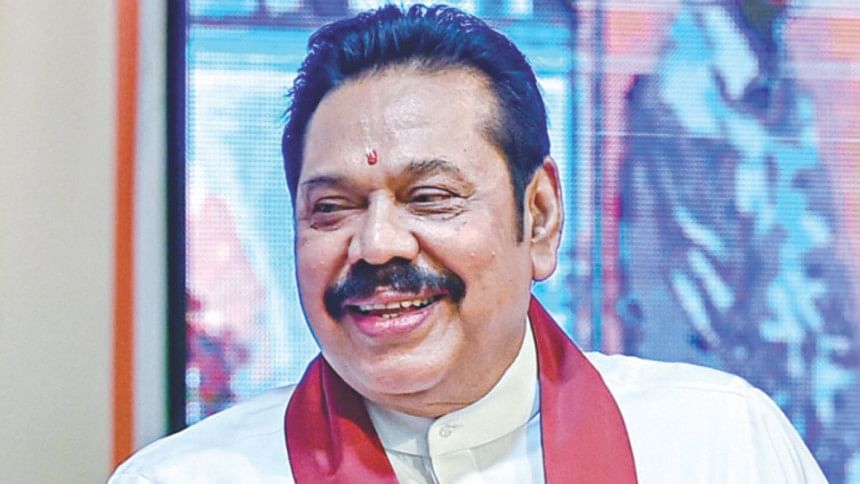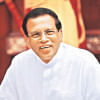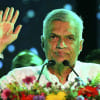SL crisis worsens

-- Parliament suspended until November 16
-- Suspension prevents Wickremesinghe proving his majority
-- EU delegation calls for calm, rule of law
Sri Lankan President Maithripala Sirisena suspended parliament yesterday to forestall a challenge against his surprise ouster of the prime minister, deepening a sudden swell of political turmoil in the island nation.
Police cancelled all leave as tensions heightened in Colombo a day after the president dismissed Ranil Wickremesinghe and replaced him with controversial former strongman leader Mahinda Rajapakse, who ended the country's long civil war but was accused of rights abuses and rampant corruption.
Also read: Sri Lanka in turmoil
Parliamentary officials said the president had suspended parliament until November 16. Wickremesinghe had earlier demanded an emergency session to prove he still commanded a majority.
Wickremesinghe continued to occupy Temple Trees, the official residence of the prime minister, and insisted in a letter to Sirisena that he was still in office.
"Get this controversy out of the way," Wickremesinghe told reporters in a press conference at the residence. "Reconvene parliament immediately so that I can prove my majority."
Parliamentary sources said Speaker Karu Jayasuriya would now have to decide if he recognised Rajapakse or Wickremesinghe as the prime minister.
The falling out between the two former allies has come to a rapid head since Sirisena earlier this year backed a no-confidence motion against the man he had handpicked to lead the government.
Sirisena initially said he would be a one-term president, but later indicated he will seek a second term that would pit him against Wickremesinghe who also has presidential ambitions.
The crisis, which follows similar turmoil in the neighbouring Maldives, has stirred international concern.
The United States called on all sides to abide by Sri Lanka's constitution and refrain from violence. European Union ambassadors in Colombo issued a similar message on yesterday.
Regional power India was also "closely watching" developments in Colombo, official sources in New Delhi told AFP.
Rajapakse is seen as being closer to China than Wickremesinghe, who had sought to re-establish stronger ties with traditional ally India.
Overnight, Rajapakse loyalists stormed two state-owned television networks -- which they regard as loyal to Wickremesinghe's outgoing government -- and forced them off the air. They resumed broadcasting yesterday and were supporting Rajapakse.
There were reports of sporadic attacks against supporters of Wickremesinghe's United National Party in several parts of the country after Rajapakse was sworn in late Friday.
The streets of the capital remained mainly calm but security was tightened around Temple Trees, Rajapakse's residence and the state television station.
Wickremesinghe, 69, who trained as a lawyer and regarded a champion of free market reforms, insisted that he can be removed only by parliament.
His party has the largest number of seats, but the president's United People's Freedom Alliance announced it was walking out of the governing coalition shortly before Wickremesinghe was sacked.
This is the second time that a president has ousted Wickremesinghe from office. In 2004, the then president sacked him and called snap elections.
After winning the premiership a third time in August 2015, Wickremesinghe amended the constitution to remove the head of state's power to sack prime ministers to prevent a repeat of his earlier ouster.
Sirisena proceeded on Friday despite the insistence of many political observers that he lacked the power to remove the premier.
Political commentator Victor Ivan said Sirisena's action was a blatant violation of the constitution. "This is a capture of power through a conspiracy," Ivan said.
However, Rajapakse loyalist and former foreign minister G L Peiris said they believed there was nothing illegal about sacking Wickremesinghe and challenged him to prove his majority on November 16.
Since his rushed swearing in, Rajapakse has yet to announce any official moves although several of his supporters said they expect a new cabinet to be formed today.
Speaking to jubilant supporters outside his Colombo home late Friday, Rajapakse called on Wickremesinghe to step down.
Members of Wickremesinghe's party must "respect democracy, respect the country and respect the law", the former president said through a loudhailer from a balcony.
Rajapakse, 72, is a controversial figure at home and abroad but has pushed for a return to frontline politics since he lost the presidential election to Sirisena in 2015.
His decade in power saw Colombo crush a decades-long Tamil Tiger uprising.
Rights groups say tens of thousands of Tamil civilians were killed in the final stages of the campaign, but Rajapakse has refused to acknowledge any abuses in the civil war.
He also leaned heavily on China for political support and took loans to build infrastructure which the new government described as white elephants. His reliance on Beijing angered India, who Rajapakse blamed for his defeat in the last presidential polls.
After Sirisena became president, Sri Lanka has moved to reconcile with India, the United States and other Western powers.
It promised the UN it would investigate allegations of rights abuses during the civil war but has been criticised for a lack of progress in the years since.

 For all latest news, follow The Daily Star's Google News channel.
For all latest news, follow The Daily Star's Google News channel. 







Comments